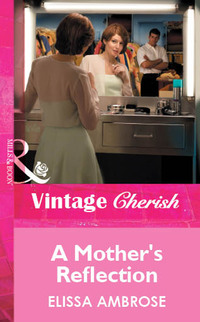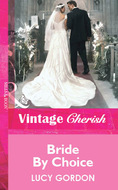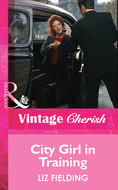Książki nie można pobrać jako pliku, ale można ją czytać w naszej aplikacji lub online na stronie.
Czytaj książkę: «A Mother's Reflection»
For years Rachel had held off searching for Megan, telling herself that her daughter was happy. Safe. Loved.
What right did Rachel have to try to reclaim what she had relinquished? What right did she have to disrupt her daughter’s life?
For years she had tried to ignore the longing, and for years she had failed. But then the dreams began, and her longing took on a life of its own. Something real, something human began to call out to her. When the dreams began to warn her of danger, she embarked on a mission to find her daughter.
And now the search was over.
She pulled out a photo of Megan and her adoptive father. She had to admit that Adam Wessler was handsome, in a chiseled sort of way. His strong, masculine face suggested fairness and integrity, but was it a kind face? A compassionate face? For her daughter’s sake, she hoped it was.
Dear Reader,
As you ski into the holiday season, be sure to pick up the latest batch of Silhouette Special Edition romances. Featured this month is Annette Broadrick’s latest miniseries, SECRET SISTERS, about family found after years of separation. The first book in this series is Man in the Mist (#1576), which Annette describes as “…definitely a challenge to write.” About her main characters, Annette says, “Greg, the wounded lion hero—you know the type—gave me and the heroine a very hard time. But we refused to be intimidated and, well, you’ll see what happened!”
You’ll adore this month’s READERS’ RING pick, A Little Bit Pregnant (SE#1573), which is an emotional best-friends-turned-lovers tale by reader favorite Susan Mallery. Her Montana Millionaire (SE#1574) by Crystal Green is part of the popular series MONTANA MAVERICKS: THE KINGSLEYS. Here, a beautiful socialite dazzles the socks off a dashing single dad, but gets her own lesson in love. Nikki Benjamin brings us the exciting conclusion of the baby-focused miniseries MANHATTAN MULTIPLES, with Prince of the City (SE#1575). Two willful individuals, who were lovers in the past, have become bitter enemies. Will they find their way back to each other?
Peggy Webb tantalizes our romantic taste buds with The Christmas Feast (SE#1577), in which a young woman returns home for Christmas, but doesn’t bargain on meeting a man who steals her heart. And don’t miss A Mother’s Reflection (SE#1578), Elissa Ambrose’s powerful tale of finding long-lost family…and true love.
These six stories will enrich your hearts and add some spice to your holiday season. Next month, stay tuned for more page-turning and provocative romances from Silhouette Special Edition.
Happy reading!
Gail Chasan
Senior Editor
A Mother’s Reflection
Elissa Ambrose

For Bubbins.
ELISSA AMBROSE
Originally from Montreal, Canada, Elissa Ambrose now resides in Arizona with her husband, her smart but surly cat and her sweet but silly cockatoo. She’s the proud mother of two daughters, who, though they have flown the coop, still manage to keep her on her toes. She started out as a computer programmer and now serves as the fiction editor at Anthology magazine, a literary journal published in Mesa, Arizona. When she’s not writing or editing or just hanging out with her husband, she can be found at the indoor ice arena, trying out a new spin or jump.

Contents
ACT ONE
Chapter One
Chapter Two
Chapter Three
Chapter Four
Chapter Five
Chapter Six
ACT TWO
Chapter Seven
Chapter Eight
Chapter Nine
Chapter Ten
Chapter Eleven
Chapter Twelve
CURTAIN CALL
Epilogue
ACT ONE
Chapter One
Middlewood, 50 Miles.
The sign on the highway flashed by. Fifty miles to her future. Less than an hour away.
Rachel glanced at the speedometer, resisting the urge to press down on the accelerator. What was the hurry? What difference would another few minutes make? She’d already waited twelve years—twelve long, painful years. If not for the dreams, she would have been content to let the years become a lifetime.
No, not content. Resigned.
She gripped the steering wheel tightly as she recalled the private investigator’s five simple words. Five simple words that had changed her life forever.
They lived in Middlewood, Connecticut.
So close.
How could she not have known? How could she not have felt it?
An hour and a half after leaving Hartford, she checked into the Colonial Inn. Her room with adjoining bath was cozy in charming New England–style, but it was out of her price range. She knew she would have to find an apartment soon, something small and reasonably priced. The P.I. had been expensive, and she was still paying rent in Hartford. Of course, if her plan succeeded, she wouldn’t need the apartment in Hartford. She’d be living here in Middlewood.
After unpacking, she freshened up and changed into her green linen suit. She wanted to look professional yet feminine. Striking but not too brassy. First impressions lasted a lifetime, and a lifetime was what she was after.
She checked her watch. She still had half an hour. Sitting at the desk, she opened her briefcase. She picked up the large manila envelope and pulled out a photograph.
The girl in the picture, with those long lashes and high, angular cheekbones, might appear delicate to someone else, but Rachel wasn’t fooled. The longer she stared at the glossy black-and-white image, the more the girl’s nature seemed to emerge. Shoulder-length hair, clustering in curls around a heart-shaped face, made her look fragile, but the eyes, hard and direct, gave her away. “I dare you,” they seemed to say. “I dare you to know me.”
Rachel smiled to herself. She’d always said that when she had a baby, she would name her Katie. Katie McCarthy, Rachel’s grandmother, had been a willful and proud woman who had never turned down a challenge.
Rachel had handled the picture so many times these past few days, she was surprised that the finish hadn’t worn away. “Katie,” she whispered, tracing the outline of her daughter’s face. Rachel had been seventeen when she’d given her up, twelve years ago. The adoption had been closed, the records sealed. According to the report, they’d named her Megan.
For years Rachel had held off searching for her, telling herself that her daughter was happy. Safe. Loved. What right did Rachel have to try to reclaim what she had relinquished? What right did she have to disrupt her daughter’s life?
For years she had tried to ignore the longing, and for years she had failed. It had become as much a part of her as breathing. But then the dreams began, and her longing took on a life of its own. Something real, something human, began to call out to her, no louder than a whisper, as plaintive as a song on the wind. When the dreams began to warn her of danger, she embarked on a mission to find her daughter.
And now the search was over.
She pulled out another photo. She had to admit that Adam Wessler, Megan’s adoptive father, was handsome, in a chiseled sort of way. His strong, masculine face suggested fairness and integrity, but was it a kind face? A compassionate face? For her daughter’s sake, she fervently hoped it was.
Megan was being raised without a mother.
Once again Rachel checked her watch. It was time to go. She returned the photographs to the envelope, then picked up her purse and briefcase and left the inn.
The weather forecast had called for rain. She’d planned on driving, but once outside she decided to walk. The sky was luminously blue, without a cloud as far as she could see.
It wasn’t the threat of rain that scared her.
One summer. She had almost three months to become an integral part of Megan’s life. Only after she’d achieved this would she reveal her identity—and what kind of man would turn his back on someone who’d become so important to his daughter?
But what if he did? What if, once her secret was known, Adam shut her out?
Another worry assailed her, this one more pressing. What if the interview went badly? What if he didn’t hire her?
Red and yellow tulips nodded at her in the light breeze, but she barely noticed. It was Adam’s face she saw, in her mind, as she headed down the inn’s stone pathway.
From a newspaper clipping attached to the P.I.’s report, she’d learned that Adam had recently left his job at the high school to manage the new community center. The clipping also reported that he was in the process of hiring. It was no coincidence that one of the job openings was for a drama teacher and that she was the perfect candidate. It was fate.
How could he not hire her?
A five-minute walk brought her to a large brick-and-glass structure. The complex stood before her like a fortress, daring her to try to infiltrate its walls. Apprehension swept through her. This was a small-town community center? She stood motionless on the front steps, debating whether to turn around. Turn around and run back home. But what kind of life did she have in Hartford? Without Megan it was a life without meaning. Nothing could fill the emptiness that engulfed her. It was like a well that year after year grew deeper and wider.
Hesitating before the tall glass doors, she looked over at the arena adjacent to the main building. The new community center was more than a hub for the arts; it also served as a home for recreational activities as diverse as yoga and ice-skating. Working in the community center would have its perks, she thought, trying to bolster her resolve. Having a rink close to where she worked would be an added bonus. She could skate with Megan. It could be a mother-daughter experience. A bonding activity.
Filled with fresh determination, she walked into the reception area of the main building. Bright and festive watercolors decorated the walls, and one in particular held her attention. Against a backdrop of buildings and street lamps, five children in coats and mittens were gathered in a public square, building a snowman. Spilling its rays onto the snow, the sun created a kaleidoscope of colors, bringing to life the magic of childhood.
“It’s wonderful, isn’t it?” came a voice from behind her. “It’s the work of one of Middlewood’s finest artists, Laura Matheson-Logan. Her husband, Jake Logan, built this complex. The painting hung in his office for years before he donated it to the center. He said it was time he shared it with others.”
“It’s lovely,” Rachel said, her gaze locked on the painting. “I’ve always been envious of artists. They have this amazing ability to capture something illusory and package it into something permanent.” She turned around to face the woman. “I do theater work,” she said amiably. “Once the play is over, the emotion is gone. All we have left is the memory of how we felt.”
“I know what you mean,” the woman said. “Nevertheless, I’ve always admired people who can create living emotion on the fly. The mood may be temporary, but isn’t life?” The woman smiled. “I’m Doreen Parker, Administrative Assistant to the Director. Actually, for now I’m the receptionist, secretary and, generally speaking, gopher. We just opened a few days ago when the schools let out, and as you can see—” she gestured at the crates along the walls “—we’re in the throes of chaos. How can I help you, Miss…?”
“Hartwell. Rachel Hartwell.” Even though Rachel had been single for two years, she still went by her married name. At least my marriage wasn’t a total waste, she thought wryly. It allowed me to change my identity. “I have an appointment with Mr. Wessler,” she said, quickly filing away the past. If she were to gain her future, she had to concentrate on the present. “I’m here about the drama teacher position.”
Doreen appeared to be about sixty, but she was by no means matronly. Her azure linen suit was simple yet chic, her salt-and-pepper hair pulled back into an elegant chignon. Rachel realized that Doreen was appraising her as well, and instinctively knew that nothing could escape the older woman’s keen, probing eyes.
“Forgive me for staring,” Doreen said. “It’s just that you look familiar. I don’t know you, do I?”
Rachel’s heart skipped a beat. Her mother had grown up in the nearby town of Ridgefield, and had moved to Hartford a month before Rachel was born. What if Doreen had known her? What if, years later, the gossip had made its way back to Middlewood? What if this woman had heard about Beth Cunningham’s wild and pregnant daughter?
Once again Rachel was grateful to her ex-husband for giving her his name. “I’m from Hartford,” she answered evasively. “A city girl through and through.”
“This isn’t the city, but I’m sure you’ll love it here. Come with me. I’ll show you to Adam’s office.”
Rachel followed Doreen down a long corridor. “Aren’t you worried about theft?” she asked, as they headed around a corner. All the windows in the reception area had been left open to dilute the smell of fresh paint. “Isn’t there any security?”
Doreen laughed. “You are a city girl.” Her face grew serious. “I have to admit, Middlewood does have its share of crime. Recently a few neighborhoods were hit with a rash of burglaries. Probably just kids, since all they took were CDs, DVDs, that sort of thing. But to answer your question, we activate an alarm system when the center is closed…. Ah, here we are.” She knocked on an unpainted panel door and opened it without waiting for a response.
The room appeared empty. “Damn pole won’t stay put,” a deep voice growled from inside the closet. “Where is that Farley? He promised he’d have this closet done by noon.”
A tall man in a well-tailored but rumpled suit emerged. “Really, Doreen,” he reprimanded, “I wish you’d wait for a response before entering.”
In the report the investigator had described Adam Wessler as “pompous and fastidious, a man who relishes his privacy.” An investigator with a large vocabulary, Rachel had thought, amused. Adam obviously liked his privacy, or he wouldn’t have barked at Doreen, and whether or not he was pompous remained to be seen—but fastidious? Standing there grumbling in his wrinkled and dusty suit, he was not what Rachel had expected. True, he was as handsome as in his picture, his nose straight and aquiline, his jaw square and proud, but his untidy appearance caught her by surprise. Holding a hammer in one hand, smoothing his dirt-smudged lapels with the other, he looked more like a gussied-up construction worker than the director of a community center.
There was also the matter of his hair. As in the photo it was thick and dark, but here in the office smoothness had given way to spiky disarray, as if he’d been running his fingers through his hair in frustration. He turned to place the hammer on his desk, and Rachel had to suppress a smile. In contrast to his gray suit, his tie was brightly colored with a cartoon of the Tasmanian devil. A gift from Megan? In any case, that he chose to wear it contradicted the P.I.’s report, which not only described Adam as pompous and fastidious but also as conventional.
Adam Wessler certainly appeared to be an interesting mix of traits.
He spun around and boldly looked her over. The word interesting hardly described him, she realized. All the pictures she had received were in black and white, but she doubted that even a color shot could have conveyed the piercing blaze of his stare. No words or photographs could have prepared her for his steel-blue eyes, which burned into her like a laser.
“Now, Adam,” Doreen said as though talking to a child, “Farley said he’d be finished in here by the end of the week. You know the theater takes priority. How can the kids rehearse without a stage? They can’t use the cafeteria indefinitely.”
“You want priority?” Adam grumbled. “What about this?” He gestured to the wall behind him. The left side was a pleasant shade of green, the right a murky gray.
Doreen clicked her tongue in disapproval. “It’s not Farley’s fault you changed your mind. What do you think, Rachel? Green or gray?”
Rachel studied Adam as he stood there, his arms folded across his chest, his brow creased with irritation. “They say that green is restful on the eyes,” she answered. “It puts the viewer in a calm mood. Like New Age music.”
“Who is this woman and why is she talking to me about New Age music?” Even as he spoke to Doreen, Adam’s eyes never left Rachel. He rested his gaze on the jacket of her peppermint-green suit and said, “I prefer the gray.”
It figures, Rachel thought, trying not to react to his rudeness. “Rachel Hartwell,” she said, extending her hand. When he didn’t take it, she pulled it back. “I’m here about the opening in the drama department,” she continued with forced confidence. She leaned over. “Uh, Mr. Wessler?” Adam had crawled underneath his desk.
“Here it is,” he said, emerging triumphantly. “I’ve been looking for this little gadget.” He got off the floor and began fiddling with his computer. “Now maybe I can get e-mail, seeing how my phone will probably never be connected.”
“Excuse me for butting in, but I don’t see how you can get e-mail without a phone.”
“For your information, we have a permanent Internet connection,” he said, looking up. “What did you say your name was?”
Rachel had no intention of being turned down for the job simply because her prospective employer was in a bad mood. “Mr. Wessler,” she said in a patient voice, “if this isn’t a good time for you, I can come back later. At your convenience, of course.”
“You see what you’ve done?” Doreen reprimanded her boss. “It’s a wonder you have any staff at all, the way you go on. Why I agreed to work for you in the first place is a mystery.”
“It’s because you’ve been secretly in love with me for years, and you’d run off with me in a heartbeat except that Roger won’t let you.”
“Just ignore him,” Doreen said, dismissing him with a wave. “He always gets delusional when he’s irritated. The truth is, my Roger could whip this boy thirty years ago, and he still can today.” She laughed when Rachel threw her a confused glance. “My husband and I were friends with Adam’s parents,” she explained. “These days, I’m kind of a second mother to him.”
Doreen seemed like a genuinely warm person, and Rachel felt herself relaxing. “He’s lucky to have two mothers,” she bantered back. “A man needs all the sound advice he can get.”
A silence fell as quickly as a late-summer fog, and Adam’s face paled.
What did I say? Rachel thought. She looked at the older woman for guidance, but Doreen’s unsmiling face was as sober as Adam’s.
“I’ll let you two get down to business,” Doreen said quietly. Then, just as quickly as it had faded, her smile reappeared, as welcoming as the sun breaking through a cloud. “Good luck, dear. I’m rooting for you.”
“I’m sorry about your mother,” Rachel said after Doreen had shut the door behind her. “How long has she been gone?”
“My mother is not gone. And she’s not going anywhere, now or for a long time to come.”
“I’m sorry, Mr. Wessler,” Rachel apologized again. “I just assumed—”
“Adam,” he corrected. “Call me Adam. I, for one, would like to go back to the time when employees addressed their superiors as Mr. or Mrs. Unfortunately those days are gone.”
He was pompous, all right. If his ego were any more bloated, he could run for king. And what was this thing about his mother? Evidently the well-composed Adam Wessler had issues. Issues the P.I. had overlooked. Which was odd, she thought, considering how detailed the P.I. had made his report. Several pages described Megan’s life—school, hobbies, friends—right down to her favorite flavor of soda. More pages contained similar information about Adam, although, Rachel conceded, his favorite flavor of soda was more than she wanted or needed to know.
“Ms.,” she said curtly.
“Excuse me?”
“The appropriate term is Ms. There’s no legal basis for an employer to know a prospective employee’s marital status.” She knew she was treading close to the line—he had the power to make or break her future—but, oh, he was so infuriating!
“Ms. Hartwell, let me assure you I don’t give a hoot about your marital status. I was merely trying to point out that it is perfectly fine for you to address me by my first name. In fact, it’s preferred. One of the center’s main goals is to reflect the community, and that includes its values. You know what I mean—apple pie, babies in strollers, Boy Scouts helping elderly women cross the street. One big happy family. It’s the kind of Pollyanna image we’re trying to promote.”
“I take it you don’t agree with this philosophy?”
He looked vexed. “It’s of no importance whether or not I agree. Now, shall we get started, Ms. Hartwell?”
“Rachel,” she corrected. “One big happy family, remember?”
He looked at her sternly for one hard moment, and then an unexpected grin washed across his face, catching her off guard.
She drew in a sharp breath. His whole austere demeanor had vanished, just like that. How could something as simple as a smile, just two lips curling up at the corners, completely transform a face?
And it was such a charming smile. He looked almost boyish, completely unlike the photographs back in her room at the inn.
This time he was the one to extend a hand. “What do you say we start again? I’m Adam Wessler, the arrogant, obnoxious director of this wonderful new establishment.”
“Rachel Hartwell,” she answered back, returning his handshake. She’d once read that a handshake told a lot about a person’s character. His was warm…protective…
She realized she had been holding on too tightly, and feeling the color rise in her face, tore her hand away. “You’re not that obnoxious,” she joked in an attempt to hide her embarrassment.
He let out a hearty roar. “Finally we’re agreed on something. Have a seat, Rachel Hartwell, and we’ll get down to business. Sorry about the folding chairs. As you can see, not all the furniture has arrived yet.” He sat down beside her. “Why don’t you start by telling me a little about yourself?”
“You don’t have my résumé? I have extras. Here, let me—”
He picked up a sheet of paper from his desk. “I have your résumé. I know what it says. I want you to tell me something I don’t know. Something about the kind of person you are. It’s not such an unreasonable request.”
What could she tell him that wasn’t on her résumé? After years of working and studying she’d finally earned her degree, and since then she’d been teaching at a private school in Hartford. Her résumé also described her active involvement in musical and children’s theater. Wasn’t she what a community-based job required? A well-rounded, involved person? What else did he need to know? “I don’t understand,” she said with trepidation.
No longer smiling, he said, “I’ll give you a hint. You can start by telling me why you want to teach here.”
“I’ve always loved kids,” she began slowly. “And musical theater. So it was only natural that I would want to pursue a career that involved both.” When he didn’t respond, she felt her panic rising. What could she say that wouldn’t give away her secret? She had to think of something. She had to land this job. And then she remembered the winter scene hanging on the wall in the corridor. The painting wasn’t only about the joys of childhood; it was about the joys of small-town living. “There’s something else.”
“And that is…?”
“I’m tired of the city. I find it too large, too impersonal. I want to live in a small, old-fashioned community. Like you said earlier, apple pie, that sort of thing. You know what I mean, where everyone knows everyone’s business.” As long as no one finds out mine, she thought.
“You seem to have developed a few notions,” he said testily. “It’s true that we’re a close-knit group, but we’re not a bunch of hicks. We nurture the same interest in the arts as do the larger cities, and we don’t take well to being patronized.”
“You don’t understand. I wasn’t—”
“Tell me what makes Rachel Hartwell tick.”
What was he getting at? What could she say that would persuade him to hire her? Then it dawned on her. He was talking about character. “I sent you a list of references. Didn’t you receive it with my résumé?”
None of the people on the list knew anything about her past. Equally important, the school where she taught was closed for the summer. She didn’t want anyone there to know she might not be returning. At this point it wouldn’t be wise to burn her bridges behind her. Eventually Adam would want to speak to someone regarding her most recent employment, but verification would have to wait until fall. By then, if everything went as planned, it wouldn’t matter.
But if her plan failed, she would return to Hartford. She couldn’t remain in Middlewood, knowing that Megan was so close yet so out of reach. She couldn’t spend the rest of her life looking around every corner, down every street, hoping to catch a glimpse of her daughter, living solely for those moments.
“You still don’t get it,” Adam said, his gaze boring into her. “I want you to tell me why I should give you this job. Give me one good, concrete reason.”
She tried to think of a reply that would please him yet be true to her ideals. “I know what it’s like to have a dream,” she said finally. “I also know what it’s like to have no one to help you nurture that dream. Some children want to be doctors, some firefighters. I wanted to be a skater—but competition was out of the question. Everyone knows how expensive that route is, and now, of course, I’m too old to compete. But if I can make a difference in someone’s life, if I can help a child realize his or her dream, then I’ll feel as if I’ve succeeded.”
The words she spoke were true. All her life she’d had a need to nurture. When she was small, she’d brought home every stray cat in the neighborhood, and when she was older, she’d gone out of her way to take the side of the underdog. Her mother used to chide her endlessly. “Lie down with dogs and you’ll get up with fleas,” she used to say.
“You realize that working here would mean a decrease in salary,” Adam said, glancing at her résumé. “This is a community center, not a private school.”
“I want to work in a more liberal environment,” she said honestly. She wasn’t thrilled about taking a cut in pay—paying rent on two apartments would be expensive and the months ahead would be lean—but she was looking forward to working in a more relaxed environment. She was tired of the senseless customs, the strict dress code, the arbitrary rules imposed by the school where she taught. “Besides,” she added, “there are benefits. For example, the arena. I still love skating, even though it’s no longer my life dream. And it’s not as rushed here in Middlewood as it is in the city.” This time she was careful not to use the term old-fashioned. She wouldn’t make that mistake again.
The interview wasn’t going as she expected. He was supposed to ask her a few perfunctory questions and get on with it, but the closed look on his face told her he didn’t buy what she was saying. Anyone with half a mind could see that she was perfect for the job. What was he getting at?
“Unfortunately, I don’t think this is going to work out,” he said.
Unfortunately? Was this what it all came down to? All her hopes crushed with one dismissive word? “I don’t understand. Won’t you just—”
“Do I look like Grace? Puh-leeze!”
A young girl with the brightest red hair Rachel had ever seen had barged into the office. “Will you puh-leeze inform Erika that I have no intention of playing Grace? What’s the matter with that woman? Can’t she see I’m meant to be Annie?”
In that moment reality merged with dream, and Rachel wasn’t sure if she’d just awakened or fallen asleep. The room around her blurred, and she had to blink to hold back tears that were threatening to steal from her eyes. Tears of joy at seeing her daughter. Tears of joy at hearing her voice.
Adam had asked for one good reason, a concrete reason. There she was, her hands on her hips, scowling in the doorway.
Darmowy fragment się skończył.








